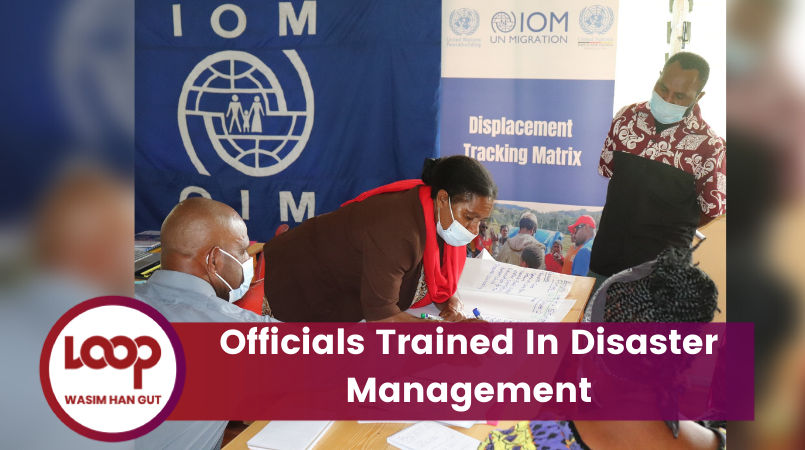
Disaster management actors in several highlands provinces now have the necessary tools and skills to accurately capture and monitor displacement and population movement.
This follows training on the use of the Displacement Tracking Matrix (DTM) in Hela, Southern Highlands, Jiwaka and Western Highlands.
Delivered by the International Organization for Migration (IOM) in Mendi town, the training was attended by 20 men and nine women from the provincial administration, district and local government offices, partners and local volunteers.
The training focused on field data collection and developing information products that better inform planning and evidence-based responses to the multi-sectoral needs of Internally Displaced Persons (IDPs).
It also addressed the prevention of sexual exploitation and abuse and upskilled participants with results-based monitoring and evaluation knowledge.
“Our provinces continue to suffer from man-made and natural hazards and effects of climate change. With limited skills in collecting displacement data, it can be very challenging for government officers to better plan and respond to displacements,” said John Kink, Southern Highlands’s Advisor for Climate Change and Disaster Management.
Tracking conflict-induced displacement provides a focus and sense of urgency to address humanitarian needs and restore and sustain peace. The DTM tool helps to inform early warning and early actions, such as mediation, targeting communities at risk of conflict-induced displacement.
Lynne Wariame, a community advocate, highlighted her experience in taking care of women and children displaced to the Hoiyabia care facility because of tribal violence by saying: “I work with women volunteers to collect data, for example, on the needs of women and children that are displaced by tribal fights in Hela Province. The information I have learned from this training is vital to my work and I will use it to educate the women that I work with at the Hoiyabia care facility.”
Elly Ako, another community advocate, and member of the Hela Council of Women promoting peacebuilding efforts in her community, welcomed the training.
“The 2018 earthquake and past tribal fights displaced many people in this province. It is challenging for us to collect data on displacement properly.
“I am happy to be participating in the DTM training because it has improved my understanding about collecting and using data to better address the needs of displaced persons.”
Ako added that she will use the DTM tool to collect and provide reliable information to local authorities and organisations supporting displaced persons and peacebuilding interventions.
Robin Yakumb, Western Highlands’ Provincial Disaster Coordinator, noted the need to expand capacities in DTM in the country.
“I strongly recommend that the DTM training be rolled out to all districts. The information that we have at the provincial headquarters, required for planning and response is inadequate and must be complemented by the districts.
“We ask our district officers to assess disaster areas and produce reports, but the reports are at times inadequate or incomplete,” he added.
"Our development partners will not be here always, and we must be at the forefront of getting our government officers upskilled for disaster preparedness.”
The training concluded with remarks from Ronald Andali, who thanked the Government of Papua New Guinea, United States Agency for International Development (USAID), United Nations Peacebuilding Fund and IOM for bringing the training to the Highlands.
The three-day DTM training was co-funded by USAID and UN Peacebuilding Fund.
